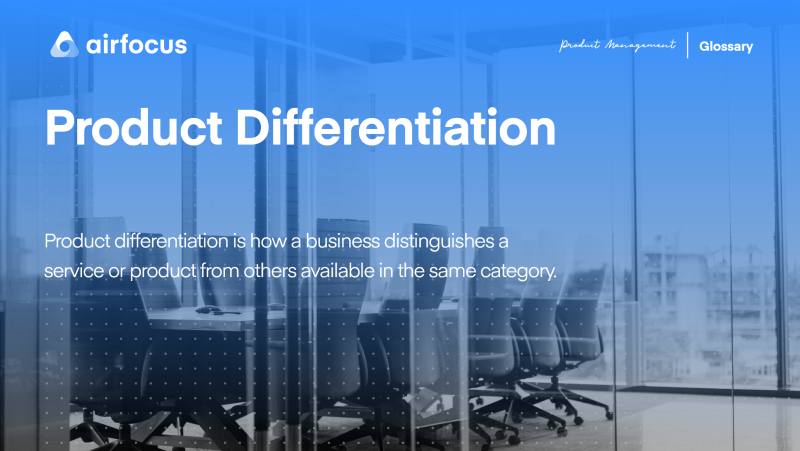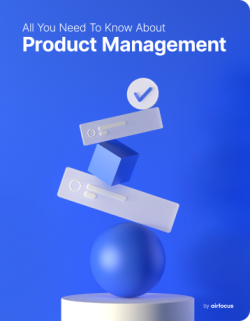Product Differentiation
What is Product Differentiation?
Definition: Product differentiation is how a business distinguishes a service or product from others available in the same category.
Think Coca-Cola and Pepsi. These two sodas are largely the same and can be bought for a similar price. So why does one (Coca-Cola) consistently outsell the other?
The same is true in most sectors, from cars to cell phones, and fashion to financial products. Sometimes the prices are the same, like Pepsi and Coca-Cola, other times they are wildly different, e.g. Gap or Gucci jeans.
So what is it that pulls similar products apart in the marketplace? What is it that makes one product ‘better’ than its competitors? And why should a customer pick them and not the other?
The answer comes down to product differentiation.
Product differentiation helps consumers make sense of their purchase options. A product’s point of differentiation becomes what is commonly known as a ‘unique selling proposition’ (USPs). USPs celebrate a product’s competitive advantage and often becomes the focus of how a product is advertised.
Why is product differentiation important?
In an increasingly competitive global environment, understanding how your product is uniquely better for another is more important than ever.
Where consumers used to be limited to the options available in their supermarket or local high street stores, there’s now a plethora of purchasing opportunities available, online, to be bought any time of day.
But, the thing is, shoppers are generally lazy. They want to be able to implicitly pick and choose from the hundreds of similar products available to buy. Indeed, you could argue there’s too much choice out there right now — with consumers suffering from choice overload in many sectors.
So that’s where a tight product differentiation strategy becomes a big commercial hook. If you can intuitively help a customer understand why they’d benefit from your product over another brand’s, they can quickly, easily decide to buy from you.
And the flipside of this is true, too.
If effective product differentiation helps your organization to understand the unique value that it brings to users, any products you take to launch without a clear differentiation strategy may well fail to gain any traction.
Who is responsible for product differentiation?
It’s unusual for a company to have an individual role dedicated to product differentiation, which means it can be hard to know who takes responsibility.
As Marketing takes ownership of how a product or brand is communicated through its marketing mix, it is often left to them to identify exactly what USPs they promote.
But it’s not quite as clear-cut as that.
In fact, product differentiation can, and should, come from anywhere in your business. Any aspect of a product can differentiate it from another, which is why product differentiation much a multi-stakeholder consideration.
Product team
As ‘owners’ of the product, a product team will be working toward a clear product vision (as outlined in the product roadmap).
Typically this product vision will have been formulated through customer insights and user research, so the product team is likely to have a clear view of the differentiating factors that actually resonate with end users.
Marketing team
Visual brand language is often the key point of differentiation for many businesses — indeed, this is the reason that Coca-Cola outperforms Pepsi year in and year out, its brand is simply stronger.
But where Coca-Cola and Pepsi are both going for a similar, mass-market target audience, the marketing team can differentiate their product from a competitor's by using branding to communicate with a separate demographic.
For example, McDonald’s and Burger King speak to very different audiences, despite having very similar product lines. Where McDonald’s is about family — with adverts featuring wedding parties and father-son bonding trips — Burger King veers more to the youth population, with celebrity endorsements.
Support and success team
Customer care is a crucial part of your product offering. And also offers an opportunity to out-deliver your rivals.
Perhaps it’s offering a game-changing reward or loyalty program, a long-term service guarantee, a generous return policy, or any other post-purchase support that competitors do not.
Either way, these opportunities for added value are another example of how a business might differentiate itself.
What are the different types of product differentiation?
Product differentiation can be broadly categorized in one of three ways:
Horizontal differentiation
Horizontal differentiation refers to products that are largely the same, and that cannot be distinguished by quality or price. Consumers will purchase one product or the other based on personal preferences. Examples are large-scale consumables, such as soft drinks, detergents, or food items.
Vertical differentiation
Vertical differentiation, by contrast, is highly dependent on the price point. A product may be essentially the same in terms of what it does, but the experience varies greatly because of price premiums. Examples are in fashion, automobiles, and airlines, where clothes, cars, and travel have widely different price points dependent on the company offering the product.
Mixed differentiation
Many products fall somewhere between vertical and horizontal differentiation, and this is known as mixed differentiation. Hotels, for example, offer different locations and proximities, amenities, services, and levels of comfort, where both price and personal preferences will contribute to purchasing decisions.
What counts as product differentiation?
There are no limits to how or where your product may differentiate itself within the market, but some of the most common areas are:
Features and functionality
Do you have a feature that no other company can replicate? Or the best performing function that everyone wants, such as the best quality camera on a cell phone?
Reliability and durability
Could your product be considered the most reliable? Will your product or service last longer than others? Can you boast of being the most trustworthy provider in the market?
Aesthetics and experience
How does your design or user experience compare to competitors? Is it nicer to look at, touch, feel or navigate?
Price
Do you offer the best price in the market? If not, what do you offer that’s more valuable instead?
Environmental factors
Will buying from you make a contribution to a better world or society? Are your suppliers ethically sourced? Are you carbon neutral? Will you donate to environmental organizations or offset your carbon emissions?
As we can see, how a business or product differentiates can vary dramatically. How your particular business gains a competitive advantage will come from an in-depth understanding of your market, your user insights, and your overarching business objectives.

General FAQ

Glossary categories
Experience the new way of doing product management

Experience the new way of doing product management








